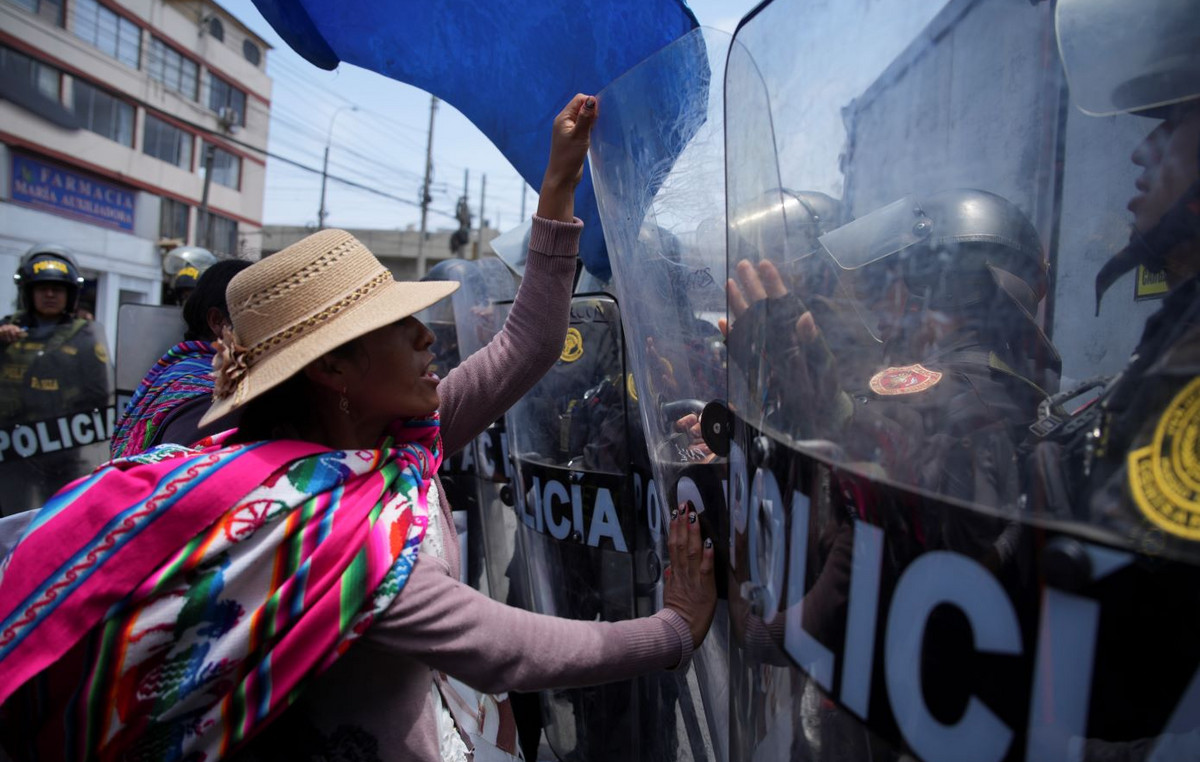A violent revolt by workers at the world’s biggest iPhone factory this week in central China is further disrupting Apple’s limited supply and highlighting how the country’s strict Covid Zero policy is hurting global tech companies.
The problems started last month when workers left the factory’s campus in Zhengzhou, capital of central Henan province, over Covid fears.
With few employees, bonuses were offered to workers to return. But the protests began this week when newly hired staff said management had broken its promises.
The workers, who clashed with security agents wearing protective suits, were eventually given money to quit and leave.

Analysts said the problems faced by Taiwanese manufacturing company Foxconn, a key supplier to Apple which owns the facility, would also accelerate the pace of diversification from China to countries such as India.🇧🇷
Daniel Ives, managing director of equity research at Wedbush Securities, told the CNN Business that the ongoing production shutdown at Foxconn’s sprawling campus in the central Chinese city of Zhengzhou was an “albatross” for Apple.
“Each week of this downtime and restlessness we estimate is costing Apple an estimated $1 billion a week in lost iPhone sales. Now about 5% of iPhone 14 sales are probably out of the question due to these brutal shutdowns in China,” he said.
Demand for units of the new model over the Black Friday holiday weekend was far greater than supply and could cause major shortages ahead of Christmas, Ives said, adding that the Foxconn outages that began in October were a Big “gut punch” for Apple this quarter.
In a note on Friday, Ives said Black Friday store checks show severe iPhone shortages across industries.
“Based on our analysis, we believe the iPhone 14 Pro shortage has gotten much worse over the past week with very low inventories,” he wrote. “We believe that many Apple stores now have iPhone 14 Pro shortages… up to 25% to 30% below normal in a typical December.”
Ming-Chi Kuo, an analyst at TF International Securities, wrote on Twitter that more than 10% of global iPhone production capacity has been affected by the situation at the Zhengzhou campus.
Covid outbreak
Earlier this month, Apple said shipments of its latest line of iPhones would be “temporarily impacted” by Covid restrictions in China.
It said its Zhengzhou assembly facility, which normally houses around 200,000 workers, was “currently operating at significantly reduced capacity” due to Covid restrictions. The campus has been facing a Covid outbreak since mid-October, which has caused panic among its workers.
Videos of people leaving Zhengzhou on foot went viral on Chinese social media in early November, forcing Foxconn to step up measures to recover its staff.
To attract workers, the company said it quadrupled daily bonuses for factory workers this month.
A week ago, state media reported that 100,000 people had been successfully recruited to fill the vacant posts. But on Tuesday night, hundreds of workers, mostly new hires, began to protest the terms of the pay packages offered to them and their living conditions.
Scenes became increasingly violent the next day, as workers clashed with large numbers of security forces.
By Wednesday night, the crowd had calmed down, with protesters returning to their dormitories on the Foxconn campus after the company offered to pay newly hired workers 10,000 yuan ($1,200), or about two months. of salary, to resign and leave the place completely.
Opportunity for India
In a statement sent to the CNN Business on Thursday after the protests ended, Apple said it had staff at its Zhengzhou facility working closely with Foxconn to ensure that employees’ concerns were addressed.
Even before this week’s demonstrations, Apple had already started manufacturing the iPhone 14 in India, seeking to diversify its supply chain outside of China.
The announcement in late September marked a major shift in its strategy and came at a time when US tech companies have been looking for alternatives to China, the world’s factory for decades.
The Wall Street Journal reported earlier this year that the company was looking to increase production in countries such as Vietnam and India, citing China’s strict Covid policy as one reason.
Kuo said on Twitter that he believed Foxconn would accelerate expansion of iPhone production capacity in India as a result of the Zhengzhou lockdowns and resulting protests.
Foxconn’s production of iPhones in India will grow by at least 150% in 2023 from 2022, he predicted, and the long-term target would be to ship between 40% and 45% of those phones from India, compared with less than 4% now. .
Source: CNN Brasil
A journalist with over 7 years of experience in the news industry, currently working at World Stock Market as an author for the Entertainment section and also contributing to the Economics or finance section on a part-time basis. Has a passion for Entertainment and fashion topics, and has put in a lot of research and effort to provide accurate information to readers.






